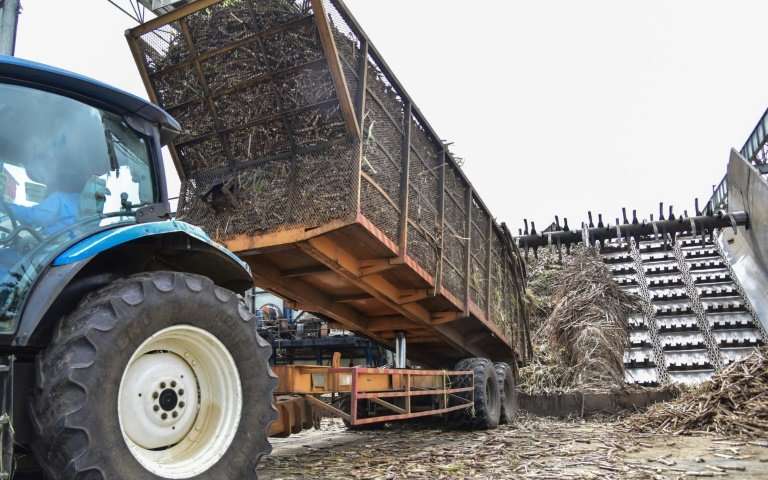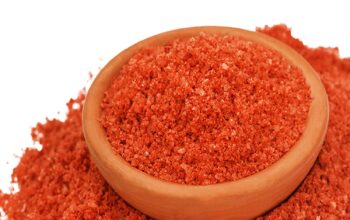Sugarcane is the main source of sugar in India and contributes significantly to the national economy. Being an important agro-based industry, sugar industry plays a substantial role in the socio-economic development of the country and provides direct employment to approximately 7.5% of its rural population.
Potassium (K), being an essential major nutrient, is critical for sustenance of crop yields. Removal of potassium by crops is either equal to or more than that of nitrogen (N). Balanced nutrition, comprising of application of nitrogen, phosphorus (P) and potassium in optimum proportions holds key to the maximization of crop productivity. Scant or non-application of potassium fertilizer has exhausted soils of their native potassium and is coming in the way of realizing the potential yields.
Sugarcane crop, because of its high potassium requirements, must be fertilized with potassium to produce an optimum yield of the millable canes and also get the quality cane juice. Field experiments with sugarcane variety Co 0238 were conducted on the alluvial soil of National Sugar Institute, Kanpur, India, during 2015-16 and 2016-17 using nitrogen and potassium fertilizers in different combinations.
Researchers analyzed the following data emanating from these experiments, in particular focusing on several physico-chemical and nutritional parameters of sugarcane such as length, diameter, number of leaves, weight, millable canes, yield, available nitrogen, phosphorus & potassium, brix, pol percent cane, purity and benefit. Cost ratio showed that the treatment comprising of 240 kg N + 120 kg K2O ha-1 maximized the economic yields and produced the best quality cane. Results indicate that the application of potassium in the range of 120 or 180 kg K2O ha-1 along with nitrogen can provide higher cane yield and further improve the cane quality while also sustaining the soil health.
India’s fast rising population has been a driving force for production of more agricultural products including sugar. With the increase in the crop productivity, nutrient removal from the soil also increases. Unless the nutrients removed or mined from the soil are replenished, crop yields will become highly unsustainable. It is for this reason that the soil fertility management is crucial in increasing crop productivity and improving nutritional security, while maintaining soil health and environmental quality.
In general, global sugar production is approximately 170-180 million tones (Mt), with about 25% of it produced from sugar beet. Demand for sugar at the global level is expected to be around 255 Mt by 2050. In India, 359.66 Mt of sugarcane is produced on 5.14 million hectares (Mha) area (ISMA, 2012). Present situation of cane productivity and sugar recovery as well as sugarcane as a feedstock for producing bio-ethanol calls for a judicious use of the available resources to meet the projected requirements of 2050.
Potassium, though being an essential nutrient for cane production as well as for other quality parameters, has often been ignored by the farmers in Indian states like Uttar Pradesh. Quite often, farmers tend to apply excessive quantities of nitrogen fertilizer which often leads to wastage of this costly nutrient intimately linked with climate change and environmental quality, deterioration in cane and juice quality, lodging of the canes, and soil health. Keeping this in mind, present field trials were conducted at Kanpur for 2 years to standardize the doses of nitrogen and potassium fertilizers for achieving higher cane yields and improving the cane quality.
In short, on the basis of two years’ experimentation on low potassium alluvial soil of Kanpur, the study conducted by an expert team affiliated with the International Potash Institute concluded that the conjoint application of N240 K2O120 is optimum and economical for obtaining higher sugarcane yield of better quality. Improvement in the available nitrogen, phosphorus and potassium status under this treatment is indicative of sustenance of soil health.
‚Effect of Potassium Application on Yield, Nutrient Uptake and Quality of Sugarcane and Soil Health‘ – Study by Ashok Kumar, Lokesh Babar, Narendra Mohan and Surinder Kumar Bansal – International Potash Institute / IPI & Indian Journal of Fertilisers, July 2019.
(The Study can be downloaded here)




